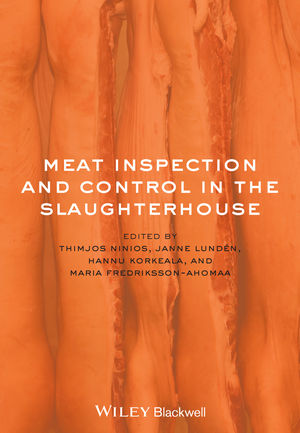Regulations & Legislation
The impact of sequestration on meat processing, FSIS and public health
What is known, and what is unknown about sequestration's potential effects at this time.

Editor's note: This story will publish in the March 2013 print issue of The National Provisioner.
At presstime in late February, sequestration had become the No. 1 topic for the meat and poultry industry. Should sequestration come, however, it would impact how the Food Safety and Inspection Service (FSIS) performs its public-health mission.
As an initial matter, “sequestration” is different than budgetary crises of the past. Previously, the crises concerned the absence of appropriated funds — Congress had not appropriated funds to spend. With these crises, there is a precedent that agencies would have to shut down any activities funded by annual appropriations that are not exempted by law. With sequestration, the appropriated funds are there, but Congress has directed the Administration to set aside and not spend a certain percentage.
Unless Congress has exempted a budgetary line item from sequestration, sequestration requires an across the board percentage reduction for all budgetary line items. In other words, the Administration lacks the discretion to allocate the reduction across line items. Given the mindless reductions mandated under sequestration, Congress has always adopted some alternative.
There are some sequester knowns and unknowns in the context of FSIS inspection.
For the knowns:
- FSIS is not exempt from sequestration.
- FSIS’ primary budget line item is salary and expenses. The Administration has no discretion to take money from other programs; it must sequester/set aside FSIS’ funds by the required percentage (approximately 5.1 of the full year’s budget/$86 million following the delay to March 1 of sequestration approved by Congress).
- Any savings already made by FSIS in areas such as new hirings, promotions and travel will count toward achieving the sequester amount.
- The Administration must achieve the reductions by the end of this Fiscal Year (September 30, 2013). Even if sequestration becomes effective on March 1, spending reductions do not necessarily immediately occur.
- Before FSIS initiates any furlough of an inspector covered by the collective bargaining agreement, FSIS must provide 30 days prior written notice. This means both industry and inspectors will be given some warning before inspectors are furloughed.
For the unknowns:
- Although the Administration has no discretion in reducing budgets across line items, it is not known whether there is discretion within a line item. In other words, could the Administration allocate resources so as to maintain in-plant inspection by reducing support services/furloughing non-plant inspection personnel? At present, it appears the Administration believes it lacks discretion to allocate within a line item.
- It is not known how FSIS will furlough.The Administration understands that furloughing in-plant inspectors will cause disruption at the plants and also with the food supply. Given this, the Administration may furlough for less than a full week at a time. For example, FSIS could furlough for 2 or 3 days at a time until all furloughs have been accomplished. FSIS seems to expect a total of 15 furlough days for all employees would be required to meet the sequestration amount.
- It is a virtual certainty that FSIS will not permit an establishment to pay for inspector presence since inspection for normal operating shifts must be paid for with government funds. There is no apparent impediment to FSIS’ granting overtime for operations outside normal operating shifts to make up lost production.
- How and if sequestration may impact the FSIS budget baseline going ino FY 2014 is also unknown.
- Both Congress and the Administration recognize sequestration can greatly damage the economy and is simply bad policy. If it does occur, however, it could well live up to its bad reputation.
Looking for a reprint of this article?
From high-res PDFs to custom plaques, order your copy today!









